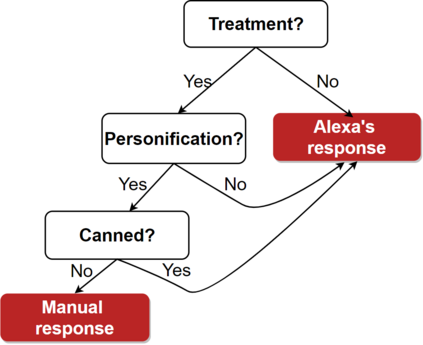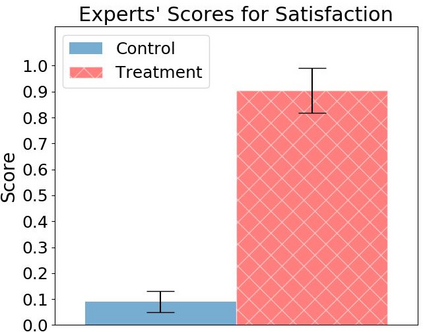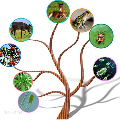Virtual assistants such as Amazon's Alexa, Apple's Siri, Google Home, and Microsoft's Cortana, are becoming ubiquitous in our daily lives and successfully help users in various daily tasks, such as making phone calls or playing music. Yet, they still struggle with playful utterances, which are not meant to be interpreted literally. Examples include jokes or absurd requests or questions such as, "Are you afraid of the dark?", "Who let the dogs out?", or "Order a zillion gummy bears". Today, virtual assistants often return irrelevant answers to such utterances, except for hard-coded ones addressed by canned replies. To address the challenge of automatically detecting playful utterances, we first characterize the different types of playful human-virtual assistant interaction. We introduce a taxonomy of playful requests rooted in theories of humor and refined by analyzing real-world traffic from Alexa. We then focus on one node, personification, where users refer to the virtual assistant as a person ("What do you do for fun?"). Our conjecture is that understanding such utterances will improve user experience with virtual assistants. We conducted a Wizard-of-Oz user study and showed that endowing virtual assistant s with the ability to identify humorous opportunities indeed has the potential to increase user satisfaction. We hope this work will contribute to the understanding of the landscape of the problem and inspire novel ideas and techniques towards the vision of giving virtual assistants a sense of humor.
翻译:亚马逊的Alexa、苹果的Siri、Google Home和微软的Cortana等虚拟助手等虚拟助手正在我们日常生活中无处不在,成功地帮助用户完成各种日常任务,例如打电话或播放音乐。然而,他们仍然在挣扎着玩弄的言辞,这些话语本不应被字面解释。例如“你害怕黑暗吗?”、“谁让狗出去?”或“让狗跑一条摇摆的灰熊”。今天,虚拟助理们常常对这种言辞做出无关的回答,除非是用罐头回答的硬码话。为了应对自动发现游戏般的言辞的挑战,我们首先要用各种游戏性的人文助理互动来描述。我们引入了一种基于幽默理论的游戏性请求的分类,并通过分析亚历克萨斯的真实世界交通流量来加以精细化。我们然后关注一个节点,人文化,让用户以虚拟助理为对象("你做什么的幽默?"。我们的想象力力手法的虚拟手法将让用户更感化的视觉更能理解。我们理解用户的视觉,我们用虚拟的视觉来提高用户的思维的动力研究。我们真的研究将让读者更能更能更能更能更理解。








